Cupped Tire Wear
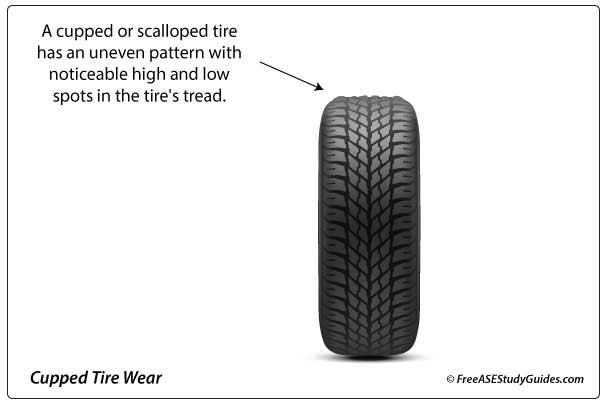
Worn or damaged suspension components like bad struts and shocks result in cupped tires. They are responsible for preventing the tire from bouncing up and down after hitting a bump in the road. The damping effect of the shock prevents the suspension coil from oscillating.
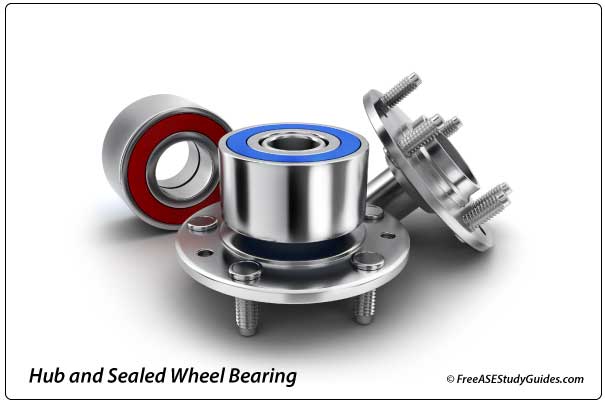
Cupped tires and bad wheel bearings make a similar growling noise while driving. This problem can make it difficult to distinguish between the two in operation.
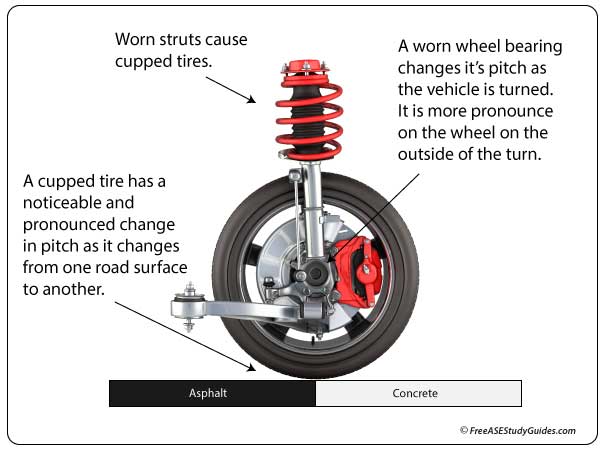
A cupped tire changes its pitch from one surface to another. This change in pitch is true with all tires but much more pronounced with a cupped or scalloped tire.
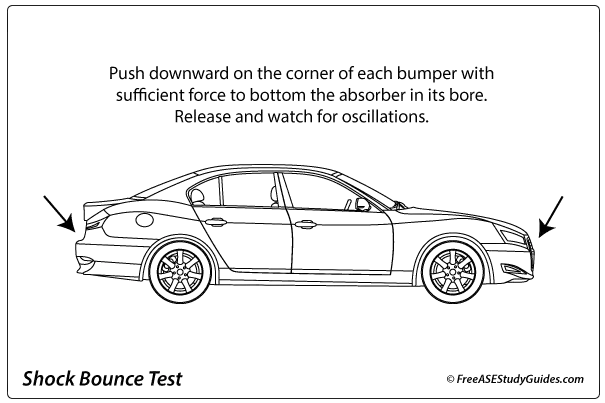
Perform a jounce test to verify a bad shock. Be careful not to damage the bumper. After pushing down, the bumper should return to normal and not continue to bounce.
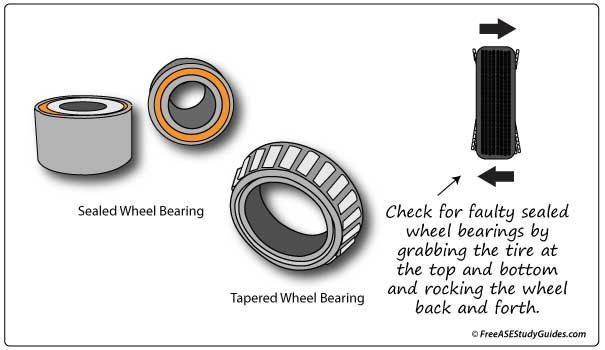
A worn wheel bearing causes a growling sound in operation. The outside wheel of a turn with the vehicle's inertia and weight leaning on it will be loudest. A bad right front bearing will be loudest while turning left. Raise the vehicle and grab the tire at the top and bottom. Rock it back and forth feeling for looseness; there should be little play, if any.